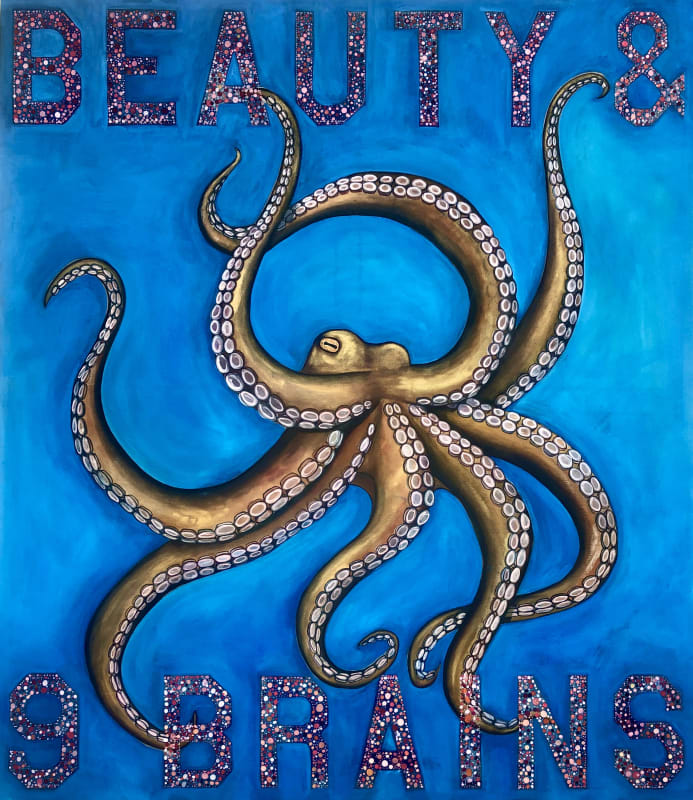Private View: Thursday 18 February, 6:30-9 pm
Characterful, vibrant animals and bold slogan text combine on the canvas to create arresting imagery that simultaneously seduces and confronts the viewer. For her forthcoming solo show Money and Fairy Tales at Kristin Hjellegjerde Gallery Berlin, Portugal-based artist Celina Teague continues her exploration of climate change and environmental issues in relation to the information and imagery that we consume through media sources.
The exhibition borrows its title from Greta Thunberg’s speech at the U.N. Climate Action Summit in 2019, whilst several of the paintings repurpose the slogans of other young activists in both a celebration of their efforts, and a critique of the adoption of language as an image without deeper consideration for the message that it conveys. By reframing these familiar phrases of text within a painted image, Teague rebels against rapid digital consumption and invites us to engage in a deeper kind of contemplation. Whilst the artist admits that many of these most recent works appear confrontational, she does not subscribe to the idea of didacticism. Her artistic practice is, in part, an expression of her own personal sense of responsibility and guilt: ‘When I heard Greta give her speech at the summit, it was a moment of reckoning. I felt like she was addressing me personally. I used to think that climate issues were the fault of my parents’ generation but I realised that it is my generation who are the worst because we had all of the facts at our fingertips.’ Teague is interested, primarily, in how art can contribute to these kinds of conversations, and offer fresh perspectives on incomprehensible statistics and unrelatable media jargon.
Alongside Teague’s slogan paintings are a collection of portraits in which the artist foregrounds a rare, exotic or overlooked animal such as the horned marsupial frog or pigeon. These works are the result of a layered creative process in which Teague first researches the animal, then writes an accompanying poem before creating the final painting with fragments of her own text stencilled onto the background. The bright colour palette, and combination of image and text is instantly eye-catching, demonstrating Teague’s understanding of contemporary viewing habits, whilst also drawing our attention to the inner existence of these creatures as sentient beings. ‘When I paint animals, I want people to see how extraordinary they are, and the text offers a different layer of perception that moves beyond pure image,’ comments the artist. Indeed, as we view these works, our gaze moves back and forth between the animal’s portrait and the emboldened words, offering alternating narratives that, in turn, ask us to consider the limitations of our prescribed perspectives.
The seductive colours and imagery of Teague’s work celebrate the natural world, whilst also highlighting darker issues, and addressing the fundamental contradiction that underpins contemporary culture’s approach to activism; while the internet provides us with access to information and social media allows us to easily promote and share messages, we are also at risk of becoming numb to climate change as another trend, another identity to try on. In this way, Teague’s paintings draw attention not only to the unsung and more complex narratives relating to environmental issues, but also to our own viewing patterns that subconsciously filter information and subsequently, narrow our worldview. This is art that commands and rewards scrutiny.


